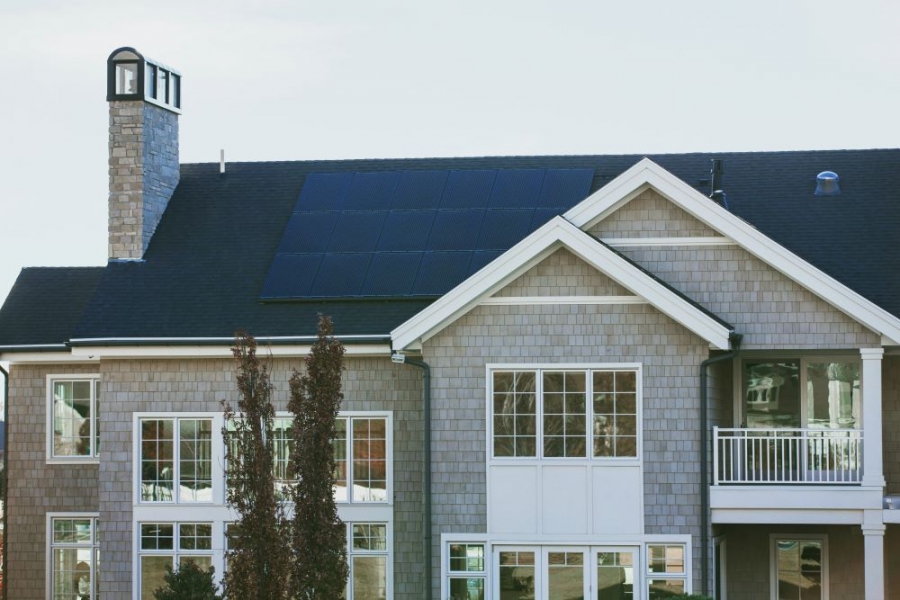In today's rapidly evolving world, the focus on sustainability and environmental conservation has never been more critical. One of the pivotal aspects of this movement is the residential energy revolution, with an increasing number of homeowners seeking alternative sources of energy to power their homes. This article delves into the transformative impact of solar energy and explores the myriad of possibilities beyond traditional fossil fuel-based energy sources.
Introduction to Residential Energy Revolution
The shift towards renewable energy sources in residential sectors is driven by the recognition of the finite nature of fossil fuels and the detrimental effects of their combustion on the environment. As the world grapples with the challenges of climate change, the adoption of sustainable energy solutions at the individual level becomes imperative. Platforms like energyhelpline.com play a crucial role in facilitating this transition by providing homeowners with access to information on renewable energy options, helping them understand the benefits of making the switch, and offering tools to compare renewable energy tariffs and suppliers.
The Rise of Solar Energy
Among the various renewable energy sources, solar energy stands out as a frontrunner in the residential sector. Its abundance, accessibility, and environmental friendliness make it an attractive option for homeowners looking to reduce their carbon footprint and energy costs simultaneously.
Understanding Solar Panels
Solar panels, also known as photovoltaic (PV) panels, convert sunlight into electricity through the photovoltaic effect. These panels consist of interconnected solar cells made of semiconductor materials, such as silicon, which generate direct current (DC) electricity when exposed to sunlight.
Installation Process
The installation of solar panels typically involves several steps, including site assessment, design planning, permitting, panel mounting, and electrical wiring. Homeowners must consider factors such as roof orientation, shading, and local regulations before proceeding with installation.
Financial Incentives and Savings
One of the primary motivations for homeowners to invest in solar energy is the potential for significant long-term savings on energy bills. Additionally, government incentives, such as tax credits and rebates, further enhance the financial viability of solar installations, making them an attractive investment option.
Beyond Solar: Emerging Technologies
While solar energy remains a cornerstone of residential renewable energy, there are numerous emerging technologies that offer alternative solutions for homeowners. These include wind turbines, geothermal heat pumps, and hydroelectric systems, each with its unique benefits and applications.
Energy Storage Solutions
The integration of energy storage systems, such as batteries, is crucial for maximizing the efficiency and reliability of residential renewable energy setups. Energy storage enables homeowners to store excess energy generated during peak sunlight hours for use during periods of low or no sunlight, ensuring uninterrupted power supply.
Smart Home Integration
Advancements in smart home technology have revolutionized the way residential energy systems are managed and optimized. By integrating renewable energy sources with smart home automation systems, homeowners can monitor energy usage, optimize efficiency, and reduce waste effortlessly.
Environmental Impact
The transition to residential renewable energy has far-reaching environmental benefits, including a significant reduction in greenhouse gas emissions and dependence on fossil fuels. By harnessing clean, renewable energy sources, homeowners can play a proactive role in combating climate change and preserving the planet for future generations.
Overcoming Challenges
Despite the numerous benefits of residential renewable energy, several challenges remain, including high upfront costs, technological limitations, and regulatory hurdles. However, ongoing research and development efforts aim to address these challenges and accelerate the adoption of sustainable energy solutions.
Future Trends and Predictions
Looking ahead, the future of residential renewable energy appears promising, with continued advancements in technology and increasing public awareness driving rapid growth in the sector. Innovations such as transparent solar panels, printable solar cells, and community solar initiatives are poised to reshape the energy landscape in the coming years.
Public Perception and Awareness
Educating the public about the benefits of residential renewable energy and dispelling common misconceptions is crucial for widespread adoption. Through targeted awareness campaigns and educational initiatives, individuals can make informed decisions about transitioning to sustainable energy sources and contribute to a more sustainable future.
Global Initiatives and Policies
Governments and international organizations play a pivotal role in driving the transition to renewable energy through policy frameworks, incentives, and regulations. By implementing supportive policies and fostering collaboration between stakeholders, policymakers can accelerate the deployment of residential renewable energy solutions on a global scale.
The residential energy revolution represents a paradigm shift towards a more sustainable and resilient energy future. By harnessing the power of solar and other renewable energy sources, homeowners can reduce their environmental impact, lower their energy bills, and contribute to the collective effort to combat climate change. Embracing innovative technologies, advocating for supportive policies, and fostering a culture of sustainability are essential steps towards realizing the full potential of the residential energy revolution.







